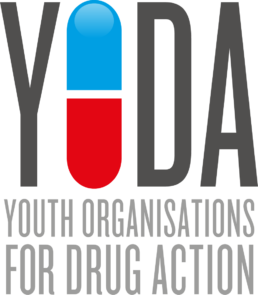The second of the YODA training workshops was held in Warsaw. The theme for this workshop was Volunteer Management. As almost all of the YODA member organisations utilize volunteers, some are entirely volunteer based, it was especially helpful to share valuable experiences on how to deal with the issues common to working with volunteers.
Day 1: Getting to know each other- the biggest achievements and challenges
Located in Państwomiasto, a trendy café and working space based in the old Jewish Ghetto, the training kicked off with presentations from each of the member organisations. Each member highlighted their previous, current and upcoming projects and campaigns, and the current modes of operation. Considering the lack of funding and human resources, and most of the work being undertaken in very difficult socio-political situations, it was incredible to hear the success stories of how member have overcome the odds to provide much needed services to advocate for the needs of those who are most marginalized in their countries. YODA will soon begin a series to highlight the achievements of our members. Watch this space!
For the latter half of the first day, countries paired up in teams. The task was to gain a situational context of the partner country who identified 3 of the biggest issues affecting young people that are not related to drug policy or harm reduction. Of the most highlighted difficulties, mental health, unemployment and lack of access to opportunity, often due poor country investment and infrastructure, were unfortunately common. Of these 3 issues, one was selected by the other country and a social action was developed. This included how to recruit volunteers, which populations to target, where to recruit from and how to manage and evaluate progress and outcomes. Although it is difficult to get a comprehensive breakdown of another country’s situation in such limited time, especially because of the huge differences in economies and governing systems between European countries, members came up with some innovative and useful suggestions. These included incentivised volunteering schemes, social media campaigns and peer mentoring schemes. The differences in situational contexts between countries was often immense. For example the differing levels of corruption, bureaucracy and huge contrast in educational systems. Despite this, ultimately young people faced almost the same problems universally. It was a very fruitful exercise. It allowed countries to better empathise with each other and share key experiences which could be transferred and adapted to individual country contexts.
Optional trip to HIV testing facility
In the evening there was an optional trip to a HIV testing facility. It catered particularly effectively to marginalized populations such as LGBTQ, Sex Workers and Young People. It was great to see an integrated trial for service here. Unfortunately it could not be stated that these were ‘services’, but it is a brilliantly progressive scheme. There were free at point of entry testing capabilities for HIV, Hep B and C and other conditions. There was also counselling and helpful referral schemes for treatment linked to sympathetic doctors. The ethos of workers is based on the health and wellbeing of the client being absolute priority and no-judgement attitude presented by the helpful staff.
Day 2- Collaboration
On the second day the hosts of this workshop, SIN, gave a brief outline of specific problems that young people in Poland face and the projects they have been developing. They have been particularly involved in developing services for harm reduction at festivals. This involved safe spaces created so that anyone who wanted water, condoms, or other general support could access the tent at any time and receive some care. It has done very well and they plan to continue and expand on this. The group was broken up into teams with one member of SIN assigned to each as a facilitator. The task was to identify specific issues to the sustainable growth and expansion of the volunteer based work that is undertaken by SIN and input was given to develop strategies to overcome these. Having a number of country perspectives to focus on helping build up the work of SIN was a great way to focus our diversity of experiences to the work of this organisation, much of which could be used by others as well.
To end the day there was a group discussion reflecting on the progress of the workshops and to identify needs for future gatherings. There will be a lot of helpful guides and documents that will be released based on the outcome of these workshops which will be made available soon.
The wealth of knowledge and experiences, each from different areas of harm reduction and drug policy is incredible. What is inspiring to see is the sheer comradery of the members and how much our members, as voices of and representatives of youth and marginalised populations, are willing to support each other. The way forward is together, onwards and upwards!
Further information:
For more information on Volunteer Management and other resources to support organisations that work with volunteers, NCVO have a library of materials freely available online.


